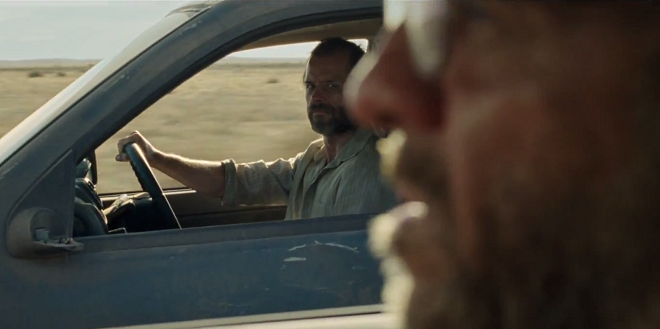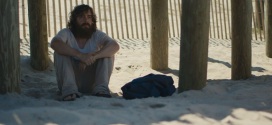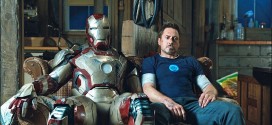Spoiler Scale (How spoilery is this article on a scale of 1 to 10?): 4
With the opening intertitle for The Rover (“Australia, ten years after the collapse”), one immediately expects the normal thematic baggage that comes with post-apocalyptic genre films – all adding up to the obligatory warning that this is where we could all be heading if we don’t change our ways. But in adapting a story co-written with Joel Edgerton, screenwriter/director David Michôd (Animal Kingdom (2010)) eschews any notion of a cautionary tale by never really explaining what the “collapse” is. (One sequence abruptly breaks the relative silence of this heavy film with the bubble gum pop of “Pretty Girl Rock” (2010) – not so much for the sake of irony, but to place the viewer within relatively close temporal proximity.) For all we know, the collapse could be the financial meltdown of 2008 – after all, the gas stations still take cash (U.S. dollars, that is). It would be more accurate to describe The Rover as a post-Western – using the anarchic desolation of the wild west as a petri dish to culture the extremes of human nature; but rather than looking toward the promises of a new frontier, it’s inhabitants are haunted by memories of what has been lost.
The film opens with a semi-catatonic, sullen man (Guy Pearce) stopping in to visit what looks like a makeshift saloon somewhere in the outback. (According to the credits, Pearce plays “Eric,” but we could just as easily refer to him as the Man with No Name.) His car is taken by three fleeing criminals who rolled their truck, and in a collective panic, didn’t take the time to realize it was simply stuck. It may the understatement of the year in cinema to say that Eric really wants his car back. (In a final scene that is bound to evoke disparate reactions, the viewer does find out why he wants his car so badly.) In the service of his odyssey, Eric lassos the wounded “half-wit” brother of one of the thieves, Rey (Robert Pattinson), who has been left behind in the course of the unexplained crime.
Notwithstanding the exemplary performances by Pearce and Pattinson and the artful and restrained hand of Michôd, even the most hardcore cineastes may have a hard time viewing The Rover a second time. (Think Requiem for a Dream (2000).) The most apt comparisons have been made to The Road (2009); but The Rover is more elemental, character-driven, devoid of any semblance of a traditional protagonist or antagonist. Eric is a man without fear, while Rey is a boy brimming with it. Both states yield tragic consequences. Beneath Eric’s fearlessness lies a profound guilt and loss – in fact, the only time he is moved to pontificate aloud is when he is brought face to face with those who labor for the pretense of order – a bureaucracy without justice. Beneath Rey’s fear is a desperate need for family, or more specifically, the loyalty of companionship. But by the end of the film, Michôd has painfully and unapologetically peeled away just about every layer of what we identify as humanity, and although there is a distinct discomfort in the idea that we may not be the same at the core, there is also the slightest, faintest glimmer of hope.
Grade: A




